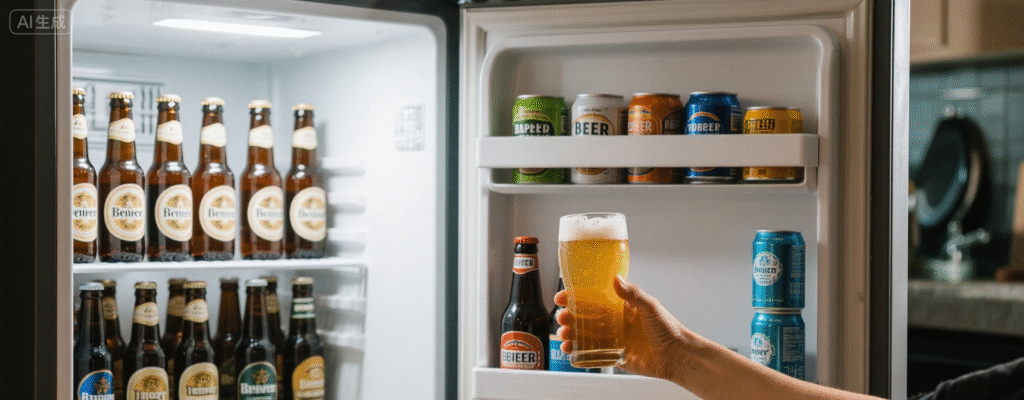For the discerning beer enthusiast, a standard kitchen refrigerator often falls short. The quest for the perfect chilled pint leads to a specialized appliance: the small fridge beer. This compact powerhouse is designed not just for cooling, but for preserving the integrity and flavor of your favorite craft brews and commercial lagers. This article explores the distinct advantages of these dedicated coolers and provides guidance on selecting the ideal model for your needs.
The Superiority of a Dedicated Beer Fridge
While a kitchen fridge can get your beer cold, it is far from the optimal environment. The science of beer storage hinges on consistent temperature and proper positioning. A standard refrigerator is typically set between 35-38°F (1.7-3.3°C) for food safety, a range that is often too cold for many beer styles. According to the Brewers Association, most ales should be served at 40-45°F (4-7°C), while many lagers are best at 42-48°F (6-9°C). Storing beer too cold can suppress its complex flavors and aromas.
Furthermore, a dedicated beer refrigerator is engineered to maintain a more stable temperature, avoiding the fluctuations common in a frequently opened kitchen fridge. This consistency is crucial for long-term storage. Most importantly, these units are designed to store bottles and cans upright. This prevents yeast sediment from settling where the cap or cork meets the liquid, which can introduce off-flavors when poured—a key consideration for bottle-conditioned beers.
Choosing Your Perfect Compact Beer Cooler
Selecting the right small beer fridge involves more than just finding one that fits. Key considerations include capacity, cooling technology, and features. Capacity is typically measured in cans, but be sure to check if this includes shelves or door storage. For technology, two main types exist:
- Compressor-Based Cooling: Offers powerful, fast cooling and can achieve a wide temperature range, making it versatile for different beer styles and even other beverages. These are the most common and effective type.
- Thermoelectric Cooling: Operates more quietly and with fewer moving parts, but is generally less powerful and struggles in warmer ambient environments. Best for maintaining cool temperatures rather than rapid chilling.
Additional features to look for include digital temperature controls for precise management, UV-protected glass doors to prevent light-struck “skunky” beer (a reaction identified by researchers as early as the Journal of the American Chemical Society in 2001), and reversible doors for flexible placement. Investing in a quality small beverage fridge ensures your collection is stored with the care it deserves.
In summary, a dedicated small fridge for beer is more than a luxury; it’s a tool for enhancing your drinking experience. It provides the precise, stable temperatures and upright storage necessary to protect the nuanced flavors crafted by brewers. By moving beyond the limitations of a standard kitchen refrigerator and choosing a model with the right capacity and features, you can ensure every beer you open is served in its ideal state, revealing the full spectrum of its intended taste and aroma.
